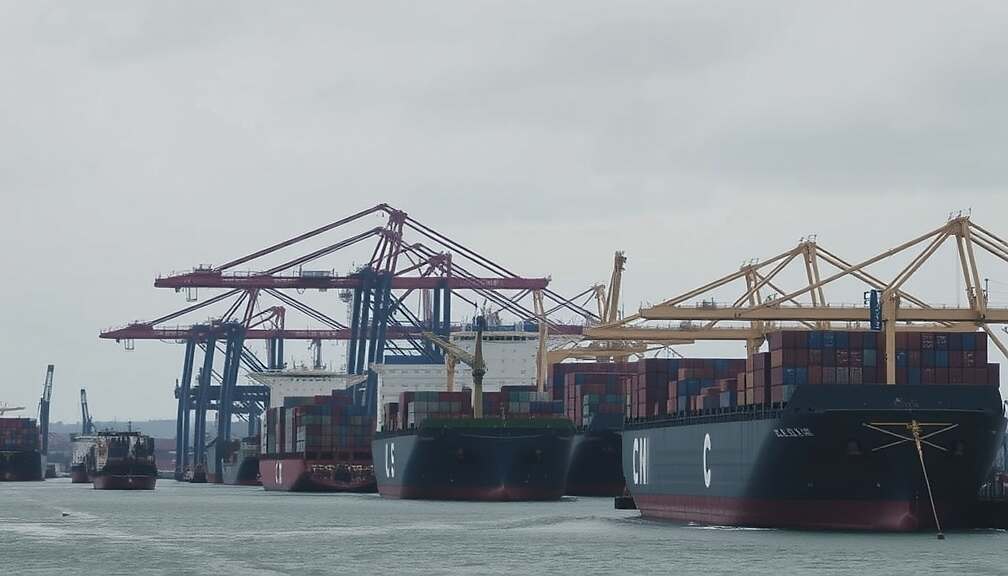Germany’s share of key global markets and within crucial industries like automotive and mechanical engineering has been steadily declining over the last decade, according to a previously unpublished analysis conducted by the Association of Research-Based Pharmaceutical Companies, as reported by “Der Spiegel”.
The analysis reveals an average annual decrease of approximately 0.11 percentage points in Germany’s share of world trade since 2013. During this period, German exports have grown at a slower rate than overall global trade volume. Significant shifts in trade structures are attributed primarily to the rise of China and the trade policies enacted during the presidency of Donald Trump. Collectively, the United States and Europe currently account for roughly one-third of global trade volume, while China represents just over one-sixth. These three economic areas combined represent half of all global trade.
Between 2013 and 2024, China’s share of world markets increased by an average of 0.36 percentage points annually. This growth occurred largely outside the United States; the analysis indicates China experienced “noticeable losses” within the US market. Beginning in 2018, coinciding with the first term of the Trump administration, the proportion of Chinese exports subject to US tariffs rose sharply, from just under one percent to two-thirds. Currently, both countries have imposed reciprocal tariffs on nearly all imported goods, leading to a redirection of trade flows.
China offset losses in the US market, in part, with increased market share in Europe. Similarly, the US compensated for declines in trade with China through gains in the European market. Europe, in turn, increased its market share in the US at the expense of China. However, Germany failed to benefit from this trend, with other EU countries securing the additional market share. Gains made by China within the European market also largely came at Germany’s expense.
The study identifies the German automotive industry as a primary driver behind these losses, citing a late response to key future trends, specifically the transition to alternative drive technologies. The analysis was based on a database maintained by the United Nations, encompassing trade data from over 170 countries.












